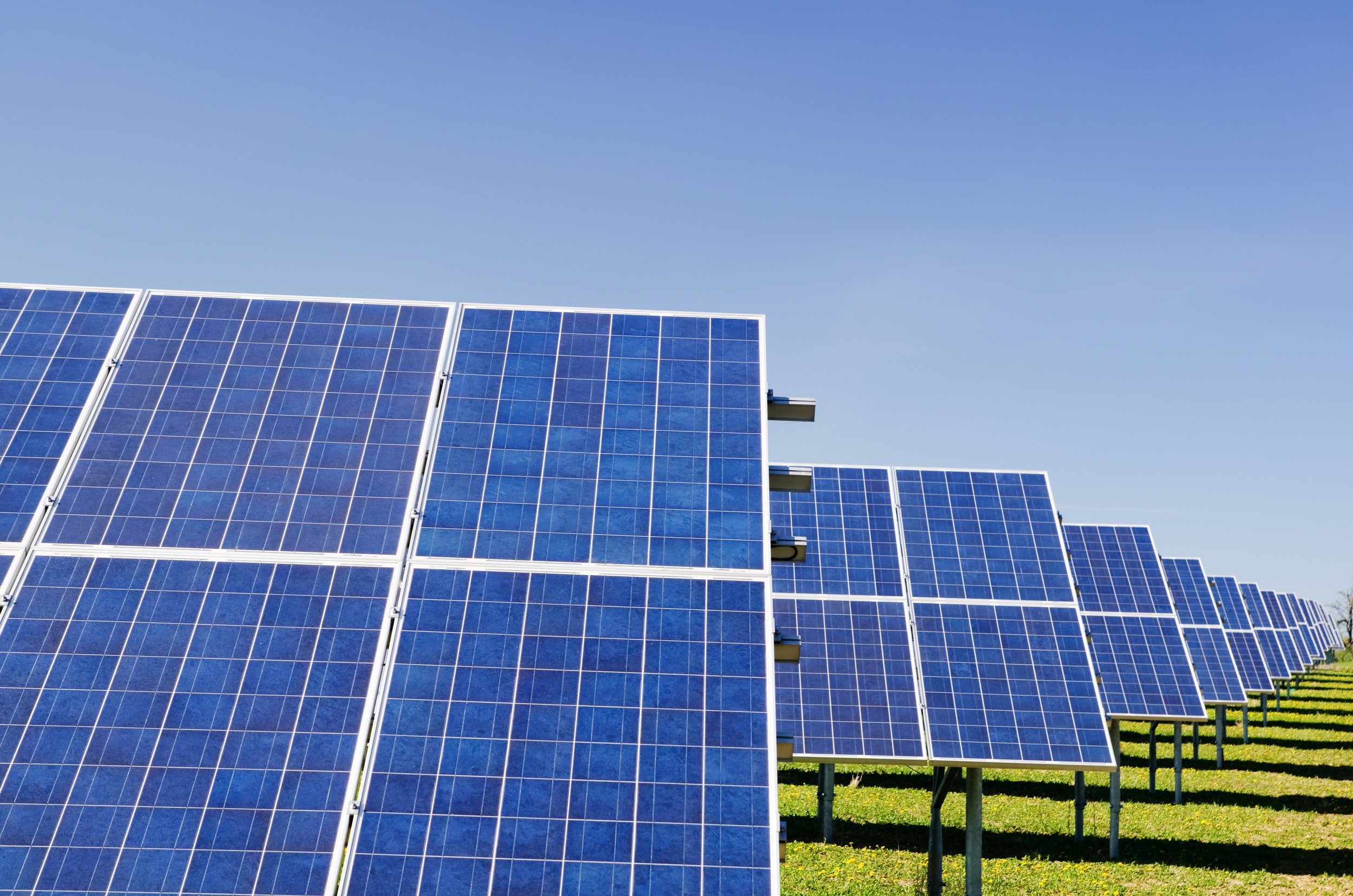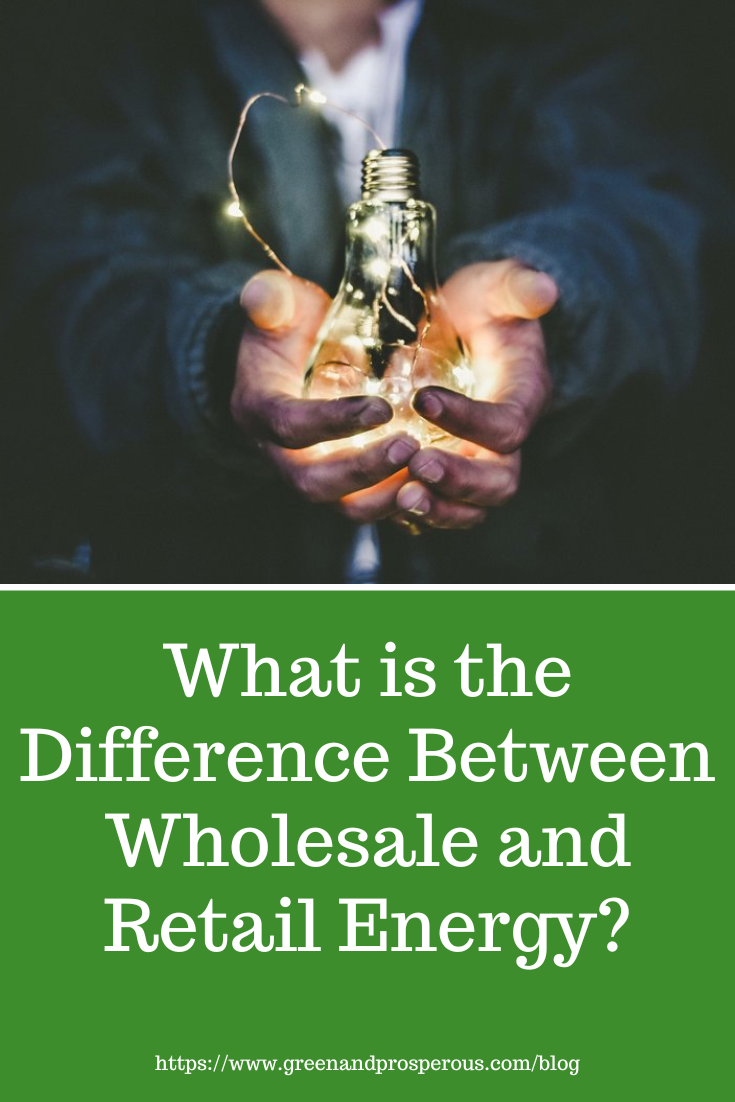What is the Difference Between Wholesale and Retail Energy?
/With inflation reducing the spending power of many households and business around the world, many of us are concerned about the rising cost of energy. According to the U.S. Energy Information Administration, in the US, the average retail expenditure on electricity alone rose 4.3% in 2021 to an average of .013.7 kilowatts per hour (roughly $122 per month) for residential homes.
Retail electricity costs for the commercial and industrial sectors also rose sharply from 2021 to 2022, ranging from increases of USD 0.24 to USD 0.58 per kilowatt hour of usage. Projections for residential homes, commercial businesses, and industries are all higher for the latter half of 2022 and into 2023. According to analysts, the higher retail prices for electricity are largely caused by higher prices for wholesale power and natural gas.
You've probably looked at your energy bill before and wondered why you are paying what you are for your home or business's electricity. You might have seen a charge for something called retail energy, but what is this? How does it differ from wholesale energy?
Retail and Wholesale Energy at A Glance
Retail energy is simply the electricity that you get from a traditional utility company, which has been generated, bought, and sold between several companies, then sent directly to your home. It is called retail energy because the utility companies purchase the energy from the power generator companies before selling it to you, the retail customer. Retail energy markets are highly competitive, and the companies that sell retail energy must forecast demand and purchase enough supply to fulfil that demand.
Wholesale energy refers to electricity that is sold in high quantities from power plants to suppliers and distributors that then sell it to consumers. The markets that purchase and distribute wholesale energy developed in the 1990s after utilities and electricity markets around the world were deregulated and restructured. The price of wholesale energy changes depending on supply and demand; if more people are using more electricity, the price of wholesale energy will go up. If there are more energy producers to meet the needs of consumers, the price will go down.
Nowadays, both retail and wholesale energy markets include renewables like solar. In fact, it is possible to combine both retail and solar energy, as in the case of rooftop solar installations that do not cover 100% of a home or business’s energy needs. If that is the case, the utility company will bill the home of building owner for any extra energy taken from the grid that isn’t covered by credits accrued from the solar panel system. By contrast, clean energy supplies like solar do not fit as well in the wholesale markets, which are premised on the marginal cost of production. However, the wholesale renewable energy market is evolving, and prices have been declining because of increased demand for wind, solar, and natural gas.
What Is Wholesale Energy?
Wholesale energy is a term that refers to electricity or natural gas sold by the power generator to other companies. It can also mean energy that is sold by one large company to another, which then resells it to customers.
Wholesale energy can also be offered directly to consumers under certain circumstances.
For example, imagine that you own a chain of fast food restaurants and you have an agreement with your local power company: they will supply you with electricity at a discount in exchange for your promise not to buy any other source of electricity (such as solar panels).
This arrangement would be considered a wholesale contract because the utility has agreed not to sell directly to consumers; instead, it sells its product (electricity) at discounted rates only through third parties.
This kind of arrangement has become more common in the past few years, although currently, most consumers of electricity purchase retail energy.
Wholesale Energy Plans
Utility companies that offer wholesale energy plans tend to charge monthly or annual membership fees, providing members with wholesale energy prices.
These prices vary a lot, as it depends on the supply and demand for energy. When there are a lot of energy producers and not a lot of demand – for example, during summer – electricity tends to be more affordable. When there is a high demand and generators cannot keep up with the demand, prices will increase.
What Is Retail Energy?
So, what is retail energy? Retail energy is the energy sold to the end-user. Energy retailers purchase energy from generators and sell their energy products and services directly to businesses and households, who then use them in their homes or workplaces.
The purpose of retail energy companies - also called utility companies - is to supply customers with electricity or gas. These companies are not responsible for the generation or transmission of this power.
Retail Energy Plans
Fixed-Rate Plans
Fixed-rate plans are the easiest option as consumers will not experience seasonal price increases. Fixed-rate plans can be from three to 36 months, so consumers can find a plan that suits their needs. If the rates offered are low, it would be best to sign a contract for a longer period of time.
Fixed rates are offered by utility companies that have already calculated the seasonal fluctuations. When rates increase, fixed-rate consumers benefit from still paying a low price for energy.
However, when the demand decreases and prices drop, fixed-rate customers will end up paying more than others for their energy.
Flexible Tariff Plans
Flexible tariff plans, or variable rate plans, are similar to wholesale energy plans because the rates depend on the wholesale energy market.
These rates change monthly, and this type of plan is contract-free, meaning consumers are not bound to a specific utility company for a set period of time.
In a Nutshell: The Difference Between Wholesale and Retail Energy
Wholesale and retail energy differ in that wholesale energy is sold by a supplier to a utility company, which then sells it to customers as retail energy.
Conclusion
In this article, we looked at the differences between wholesale and retail energy to give our readers a better understanding of why they pay what they do on their monthly energy bills. This information will ensure that you are a more informed consumer so that you can make the best decisions for your business and your family when it comes to buying energy.
About the Author:
Alex Chapman is a passionate thought leader. His passion and knowledge in Business and Finance made him a highly regarded contributor providing valuable insights to his readers. He is a bookworm, and you will see him discussing current events in his spare time.
Like this?/ Please pin!







































